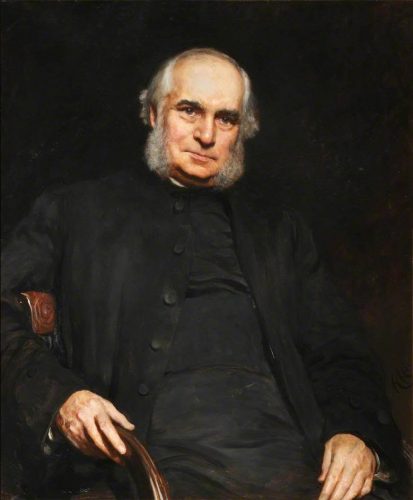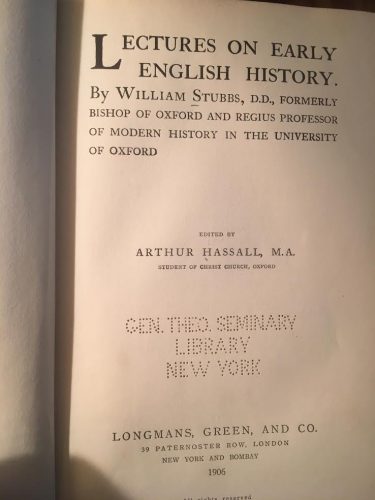I recently read an intriguing book concerned with the exponential advances in technology and the impact thereof on human society. The author believes that the displacement of human labor by technology is in its very early stages, and sees little limit to the process. He is concerned with how this will affect–indeed, has already affected–the relationship between the sexes and of parents and children, as well as the ability of ordinary people to earn a decent living. It’s a thoughtful analysis by someone who clearly cares a great deal about the well-being of his fellow citizens.
Britain
Rerun- Memo on Royal Families
To: The Usual Media
From: Sgt.Mom
Re: Use of a Particular Cliche
1. I refer, of course, to the lazy habit of more than a few of you to refer to the Kennedy family, of Hyannisport, late of the White House, and Camelot, as “royalty”, without use of the appropriate viciously skeptical quote marks. Please cease doing this immediately, lest I snap my mental moorings entirely, track down the most current offender, and beat him/her bloody with a rolled-up copy of the Constitution. This is the US of A, for god’s sake. We do not have royalty.
2. We did, once, as an agreeable and moderately loyal colony of His Majesty, Geo. III, before becoming first rather testy and then quite unreasonable about the taxation and representation thingy, but we put paid to the whole notion of hereditary monarchy for ourselves some two centuries and change ago. There is a certain amount of respect and affection for certain of Geo. III’s descendants, including the current incumbent; a lady of certain age with the curious and old-fashioned habit of always wearing distinctive hats, and carrying a handbag with no discernible reason for doing so. (What does Queen E. II have in her handbag, anyway? Not her house-key to all the residences; not her car keys; not a checkbook and credit cards, not a pocket calendar or business card case, not a spare pair of stockings— I understand the lady-in-waiting takes care of that — handkerchief, maybe? In the case of her late mother, a flask of gin?) Oh, anyway, back to the subject: royalty, or why we, a free people, should feel any need to grovel before the descendants of particularly successful freebooters, mercenary businessmen, and social climbing whores of both sexes.
Culture, Innovation, Victory, and Defeat
(Today being Trafalgar Day, it seems like a good time to rerun this post)
In 1797, a Spanish naval official named Don Domingo Perez de Grandallana, wrote a thoughtful document on the general subject “why do we keep losing to the British, and what can we do about it?” His thoughts were inspired by his observations while with the Spanish fleet off Cape St Vincent, in a battle which was a significant defeat for Spain, and are relevant to a question which is very relevant to us today:
What attributes of an organization make it possible for that organization to accomplish its mission in an environment of uncertainty, rapid change, and high stress?
Here are de Grandallana’s key points:
An Englishman enters a naval action with the firm conviction that his duty is to hurt his enemies and help his friends and allies without looking out for directions in the midst of the fight; and while he thus clears his mind of all subsidiary distractions, he rests in confidence on the certainty that his comrades, actuated by the same principles as himself, will be bound by the sacred and priceless principle of mutual support.
Accordingly, both he and his fellows fix their minds on acting with zeal and judgement upon the spur of the moment, and with the certainty that they will not be deserted. Experience shows, on the contrary, that a Frenchman or a Spaniard, working under a system which leans to formality and strict order being maintained in battle, has no feeling for mutual support, and goes into battle with hesitation, preoccupied with the anxiety of seeing or hearing the commander-in-chief’s signals for such and such manoeures…
Thus they can never make up their minds to seize any favourable opportunity that may present itself. They are fettered by the strict rule to keep station which is enforced upon then in both navies, and the usual result is that in one place ten of their ships may be firing on four, while in another four of their comrades may be receiving the fire of ten of the enemy. Worst of all they are denied the confidence inspired by mutual support, which is as surely maintained by the English as it is neglected by us, who will not learn from them.
The quote is from Seize the Fire, by Adam Nicholson.
Our only enemy was gold
I’ve always thought Edwin Muir’s poem ‘The Castle,’ like Burns’ ‘Parcel of Rogues,’ referred to the Acts of Union of 1707. Many Scots considered the union of Scotland and England to be a corrupt bargain in which Scottish nobles and landowners who’d been ruined by the Darien scheme were bailed out with English money in return for signing over Scotland’s independence. (I don’t want to argue the merits of that theory; historians have been batting it around for four hundred years without reaching agreement. I just want to point out that the attitude exists.)
It did just occur to me recently that there could be another, slightly anachronistic interpretation of the poem. If Edwin Muir had been given a glimpse of Scotland’s condition today and the destructive effects of welfare dependency, he might have written exactly the same poem. For generations Scotland was a poor country whose greatest natural resource was its people and their devotion to education. They educated their young people and sent them out all over the world, and as George MacDonald Fraser said, “A Scotsman on the make is a terrible thing.”
The expansion of the welfare state has eroded that, perhaps fatally.
All through that summer at ease we lay,
And daily from the turret wall
We watched the mowers in the hay
And the enemy half a mile away
They seemed no threat to us at all.
For what, we thought, had we to fear
With our arms and provender, load on load,
Our towering battlements, tier on tier,
And friendly allies drawing near
On every leafy summer road.
Our gates were strong, our walls were thick,
So smooth and high, no man could win
A foothold there, no clever trick
Could take us, have us dead or quick.
Only a bird could have got in.
What could they offer us for bait?
Our captain was brave and we were true….
There was a little private gate,
A little wicked wicket gate.
The wizened warder let them through.
Oh then our maze of tunneled stone
Grew thin and treacherous as air.
The cause was lost without a groan,
The famous citadel overthrown,
And all its secret galleries bare.
How can this shameful tale be told?
I will maintain until my death
We could do nothing, being sold;
Our only enemy was gold,
And we had no arms to fight it with.
QOTD, William Stubbs, the English Constitution as an old country house

Of all constitutional systems the English combines the greatest political with the greatest personal liberty. You will accept this on the testimony of foreign writers on politics, to whom for centuries our polity was the model of free institutions. You will not be less likely to accept it after reading the history of the newer constitutions in Europe and in America which have copied many of the leading features of our own, but have not tempered them or adapted them so wisely to their own circumstances that they seem a natural and spontaneous growth, or have not calculated their forces so well as to secure an equable and uniform working. You will further, I think, realise the fact that a national polity is not the creation of a single brain or of a royal commission of brains, but grows with the growth and strengthens with the strength of the nation; cannot be changed without changing much of the spirit of the people, and is strong in proportion to the distinctness of its continuity.
Our own English constitution is like many old country houses which have a great history of their own if they could tell it; have been now castles, now abbeys, now manor houses, or farm buildings; in which every room has often changed its destination, and the granary become a dining-room, the chapel a billiard room, and the dairy a bath; about which many little turrets have been run up and tumbled down; some have been battered down by enemies, and some pulled down because they made the chimneys smoke; in which chimneys themselves are a novelty, and drains and hot-water pipes a new development of luxury; in which no one room now answers the purpose for which it was built, but has answered many others and more useful ones that were not contemplated. Such a house is generally beautiful, sometimes a little inconvenient to people whose ideas are bounded by a front door and five square windows, but it has its history, it has seen a great deal of happiness, and would not be what it is unless it had seen and been adapted to many changes.
Well, so the constitution begins with the little farmhold in the Teutonic clearing; it grows up and becomes a feudal manor; it builds a national church and a court of justice, and towers and crenellates its roofs and walls; the church becomes the mother and nurse of liberty, and then liberty takes on itself to reform and remodel the church; the court of justice develops into a parliament; trial by jury grows out of compurgation and ordeal. It retains much that it could do without, and goes without much that might be well added if it were not that the addition would stop the working of some more important part. It will, however, like an old house, also stand a great deal of alteration and adaptation without losing its identity.
Lectures on Early English History, William Stubbs (1906)
